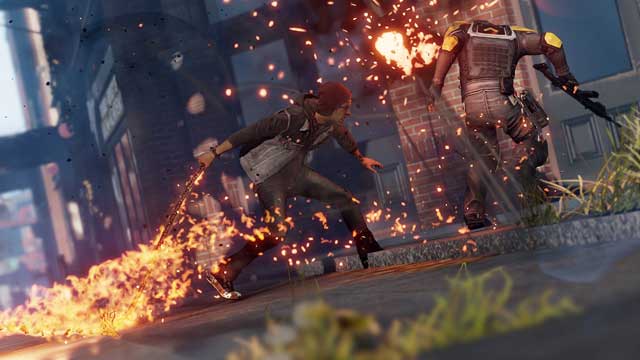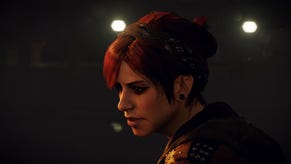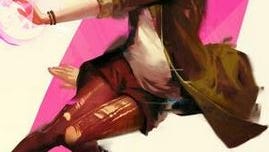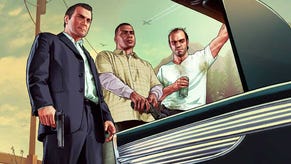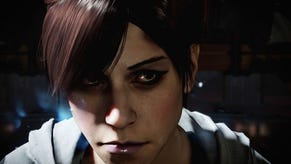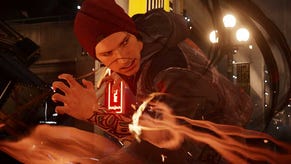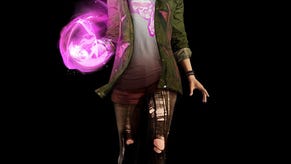InFamous: Second Son talks weighty subjects, but offers shallow choices
InFamous: Second Son touches on themes particularly relevant in this post-9/11, post-Wikileaks world, but after going hands-on, Brenna's not convinced it's asking the right questions.
You might remember InFamous: Second Son's reveal, early in the PlayStation 4's saga. In a bold, dramatic move, the game was introduced by a discussion of the themes and subject matter that inspired it, citing increased airport security, fear of terrorism, increased government surveillance and punishment of whistleblowers.
The eventual revelation of the title as a new entry in Sucker Punch's open-world superhero action series inspired both fans and detractors. Video games do have the capacity for serious discussion of important subject matter, but action games rarely manage to pull it off (with some notable exceptions).
I had all this in mind when I went to play the game at PlayStation Australia's offices recently. The demo Sony showed me illustrated something players would normally only get a chance to see on repeat playthroughs - the branching storyline.
At the start of the demo, Delsin and his brother Reggie have just captured Fetch, a conduit with neon powers, which Delsin has absorbed. Delsin's brother urges him to have the conduit sent to jail, and the player is offered a moral choice. The short demo includes this choice and the mission that follows, allowing you to see both sides. Interestingly, though, the choice doesn't have much impact on what happens next, story-wise - you're not given the option to send the conduit to jail, or to kill her.
In the blue (good) choice, Delsin talks his brother round. In the red (evil) choice, Delsin threatens Reggie instead, apparently to the detriment of their relationship. In both instances, the player goes on to do a mission with Fetch.
Although the content of these missions varies (the evil one notably puts you in situations were civilians are almost certain to be caught in cross-fire), and Delsin's personality seems pretty different depending on which you choose, in terms of story the player isn't really shown any consequence to their choice. This makes the choice between good and evil feel a little bit inconsequential; if I had to make the decision based on what I'd saw, I'd probably go with the side with the cooler powers, or the one where Delsin had better lines, rather than really thinking about the characters and story.
I would be very interested to learn whether the choice does have greater consequence story-wise further down the track - maybe Delsin's brother betrays him, or something. On the one hand, that would make the choice between good and evil feel far more weighty than it does at present. On the other, there's not really any way for the player to predict possible consequences; I didn't realise choosing the evil path would make Delsin's brother angry, for example; in fact, I thought it was more likely to please him, since he was being a bit of a tool at that point.
As with previous InFamous games, I feel the branching gives players a great incentive to play through twice; even if it weren't a sheer pleasure to zip about the open world causing trouble and ticking off boxes on your achievement checklist, the franchise to date has done a good job of making the two aspects of Cole's personality feel really different, so it felt kind of like two different games.
What it doesn't give you is any grey area. Being neutral by switching back and forth always made Cole seem disconcertingly unstable, and in some instances, made it really hard to get your paws on the best powers. Unfortunately that means players are pretty much committed to one set of choices all the way through the game. I had hoped to see a bit more ambiguity in the new game, given that it touches on some very relevant subjects - surveillance states, police states, terrorism and freedom fighters. From what I saw in the demo - which was only once choice, let me remind you, and therefore potentially not representative of the game as a whole - there's none of the thoughtfulness offered by games like Dragon Age or even Fable, where choices can be agonising.
"It's uncomfortable to be told "this is good, and this is evil" and be given no room for interpretation, especially when the subject material has real-life analogues."
Maybe that's a good thing, because not everybody wants to sit there tearing their heart out over moral quandaries, but I find it a bit concerning. It's uncomfortable to be told "this is good, and this is evil" and be given no room for interpretation, especially when the subject material has real-life analogues.
One thing I have always liked about InFamous is that the morality system - flawed as it may be - really carries through into gameplay. You are always given lethal and non-lethal tools, and in Second Son I found it just about as easy to neutralise a threat by zapping them in the feet as to kill them by popping up a headshot. Skilled players are awarded for their precision in avoiding civilians, and evil players are rewarded for spreading as much chaos and carnage as possible. This is really refreshing; I'm sure we've all played games where a protagonist goes from everyday joe sobbing over a single death in a cutscene to screaming, rampaging psychopath - apparently in the space of an hour. InFamous not only allows for but encourages and rewards moral consistency.
I had plenty of opportunities to test this as both the good and evil mission were pretty combat heavy. In the good mission, Delsin had to find and mark a series of houseboats being used by drug dealers, freeing hostages on the way, so that his ally could blow them up. The docks were absolutely crawling with enemies, and although our hero is pretty resistant to damage (I'm not great at shooters when using a control pad, and I didn't die even once) it was pretty tense nipping about from cover to cover, sniping distant enemies with bolts of smoke or neon and melee-charing those nearby - especially given my tendency to jump about, a great risk thanks to Delsin's water allergy.
There were fewer enemies in the evil mission, but they were tougher. The DUP is staffed by conduits of varying abilities, which makes them interesting foes. They all have concrete-based powers (just FYI Sucker Punch I'm still not sold on "concrete" as a power, and neither is Captain Planet) which range from trapping you in cement boots to slamming you very, very hard to - well, to be honest, I was pretty much just checking out my own powers. The Concrete Police, as I continued to call them despite protestations from my guide at Sony, are more formidable foes than the more numerous drug dealer grunts in the good mission, which gave me more scope to try out Delsin's smoke and neon abilities.
I think I'm going to like Second Son. It doesn't seem to stray too far from the formula set by previous games, but the ability to switch between two power sets pretty much answers the only strong critique I had of the previous games - that Cole's powers all felt and looked pretty samey past a certain point. I'm not sold on Delsin, and not just because of his beanie, but at this point I'm pretty interested to see what Sucker Punch can do with the PS4, and with the bundle of interesting themes its chosen to tackle in a medium still not entirely equipped to deal with them.
